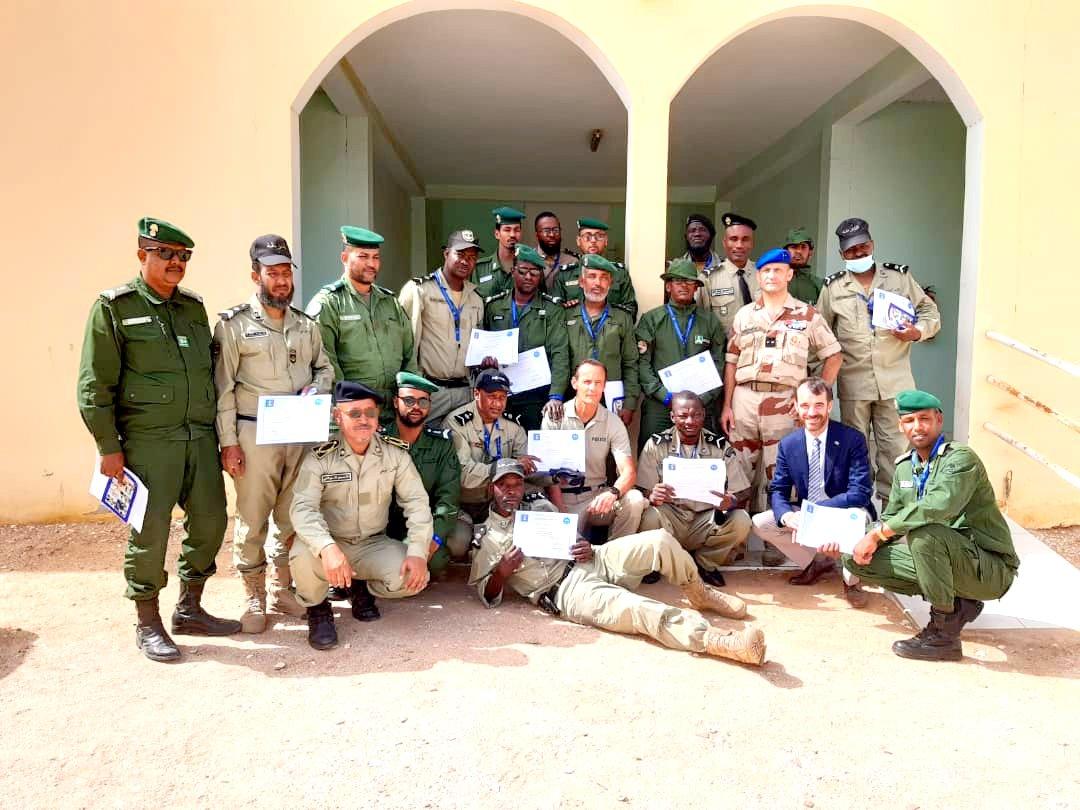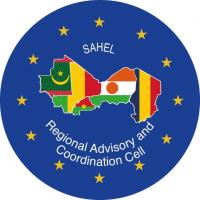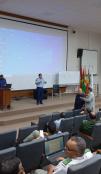The RACC contributes to the enhancement of Mauritanians Police and Gendarmerie officers’ skills

It’s day two at the “Professional Intervention Techniques” training course organised by the EU Regional Advisory and Coordination Cell for the Sahel – RACC at the Police Academy in the Mauritanian capital Nouakchott.
The course starting on 27 June lasts for two weeks. Topics include appropriate interventions’ methods, the legal framework of the different types of intervention, Human Rights and Gender provisions, interception of vehicles and tactile searching techniques.
Before kicking off with the lecture and the practical exercises on 26 June, Guy shows the participants a video with the footage of the simulation exercises they performed the previous day. The image is halted the Q&A (question and answers) on how, what, where, when: “Do I have the right to intervene in this situation” asks Guy? Hands raise, replies are provided, often followed by animated debates in Arabic and French. Everyone in the room agrees and knows it is necessary to look into the provisions of the codes applicable in the Islamic Republic of Mauritania. The attention is on the different possible options for every situation and most effective practices, based on the fundamental rights of the individuals the security agents deal with.
Diallo Samba Camara is a participant in the training, however he plays a special role. Having been already trained on Professional Intervention Techniques during RACC’s led courses, the 50 years old police officer from Nouakchott is now a co-facilitator in the course and a trainer for his colleagues.
Asked about the added value of the training received through the RACC, Diallo answers: “Since now police officers are aware of the necessity of proportionality in the day-by-day intervention, and far more attentive at people’s rights, I can see that the public look at us with a good eye. It is a notable change”.
Even though there are no women participating in this training, discussions touch upon situations of possible threats posed by women and how to deal with this in the most adequate manner. The fact that searching should be performed by officers of the same sex as best possible option is mentioned and fully agreed upon by all participants.
The principle that security forces are at the service of the public and are the first defendants of public legitimate rights is reiterated and fully agreed upon during the course.
Julien Lepiece Senior training advisor explains at the margin of the training that this June-July session is the third one organised in Nouakchott. “Previous training took place in May-June 2021 and in November-December of the same year”, adds Julien, who feels a sense of accomplishment having Diallo in the room as a co-facilitator. “The final goal of our advising and training activities is for our Sahelian partners to enhance their capacities and be proficient enough to pass their know how on”.
Congratulating participants and trainers on the occasion of the closing ceremony held on 8 July, the Head of the RACC, General Raymond Sausin, said: “Combining efforts, harmonising techniques, pooling resources and sharing experiences between security forces: the keys to a successful training!”. The Team Leader Governance of the Delegation of the European Union to Mauritania, Jérôme Lebouc, and a commissioner from the Mauritanian police representing the school director, also attended the ceremony.





